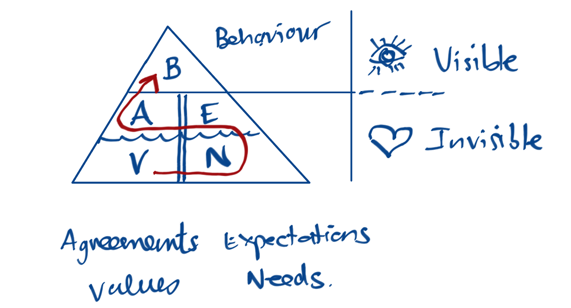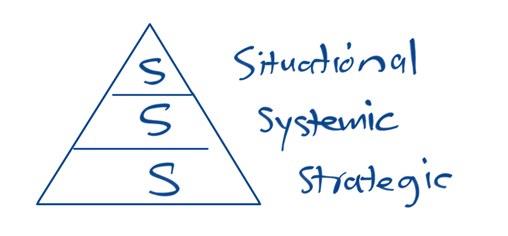INSIGHTS
Why do some relationships break down?

Most relationships start off in the idealistic elastic zone. Healthy relationships operate in the plastic deformation zones of negotiation and conflict resolution where effective communication is arguably the most important success factor. Inevitably there will be some stress associated with the negotiation and conflict zones but too much stress can push a relationship over the edge. Let’s have a look at some of these stress drivers.
Why do some relationships break down?
There are many potential reasons why relationships don’t work and sometimes come to an end. In my experience, this is typically when there is an irreconcilable gap between expectations and behaviour. Quite often this is complex and difficult to understand and the reason is that there is a hierarchy structure to the expectations where the behaviour is based on agreements (most of which are tacit), which in turn are overlaid on top of values and needs.
Relationship agreements guide the way we interact with each other and set guidelines for boundaries. Agreements are complex because many of them are implied, inferred and not expressly articulated. It’s arguably laborious and impractical to discuss all of them.
Agreements are driven by expectations and float on a sea of values and needs. Values are dynamic and change in relative priority to each other depending on context and circumstances, which potentially creates ambiguity, confusion and misunderstandings. Values are complex because there are so many of them and they are difficult to prioritise.
Quite often different values will be incompatible with each other and result in conflict. Values need to be seen through the lens of relativity where the contextual situation you find yourself in will determine how you prioritise different values in different situations. Consider the scenario in which a team member takes the initiative to get some work done and displays a high degree of independence, speed and efficiency (all three of these being values in this situation). However, some members of the team may value teamwork and collaboration more highly in that situation and get upset that the individual didn’t include them in the work.
Behaviours are the visible interactions between people but the values, needs, expectations and agreements lie deeper below the surface, as represented by the figure below. The sequence of invisible linkages starts with a values assessment and is followed by a need for that value to be met, which drives an expectation that is translated into behaviour through an agreement that may be articulated, assumed or implied.

Navigating this invisible landscape is challenging and the only way to maintain effective relationships is to constantly keep talking about what’s important to you and what you value and then negotiate agreements and boundaries as they come up or as they change and then resolve conflicts as they emerge. Failing to communicate, negotiate and resolve conflicts effectively increases the risks of the relationship drifting into the Breaking Point Zone.
Forgive and forget
There is a time and a place to forgive and forget. If there is consensus on shared values and agreements and one party has transgressed these in someone and admits as much and then recommits to future behaviour that is consistent with the shared values and agreements then it is natural to forgive and forget. However, when the behaviour regularly or consistently falls foul of expectations then there is a systemic problem indicating that there is a difference in values or the interpretation of an agreement. It isn’t possible to forgive and forget in the case of systemic misalignment.
Here’s a simple and effective framework to analyse this problem. I learned it at business school from our operations lecturer, the legendary Normal Faull, and I think it applies to relationships too.

You can forgive and forget when it comes to situational problems but systemic problems require more intensive focus and a deeper dive into what the challenges are. Negotiation and conflict resolution can solve systemic problems if there is middle ground on values and agreements. If not, then you’re probably into the territory of a strategic problem, which means you’re in a relationship with the wrong partner, supervisor, organisation, market sector, industry or potentially even the wrong career.
Relationship agreements guide the way we interact with each other and set guidelines for boundaries. Agreements are complex because many of them are implied, inferred and not expressly articulated.




